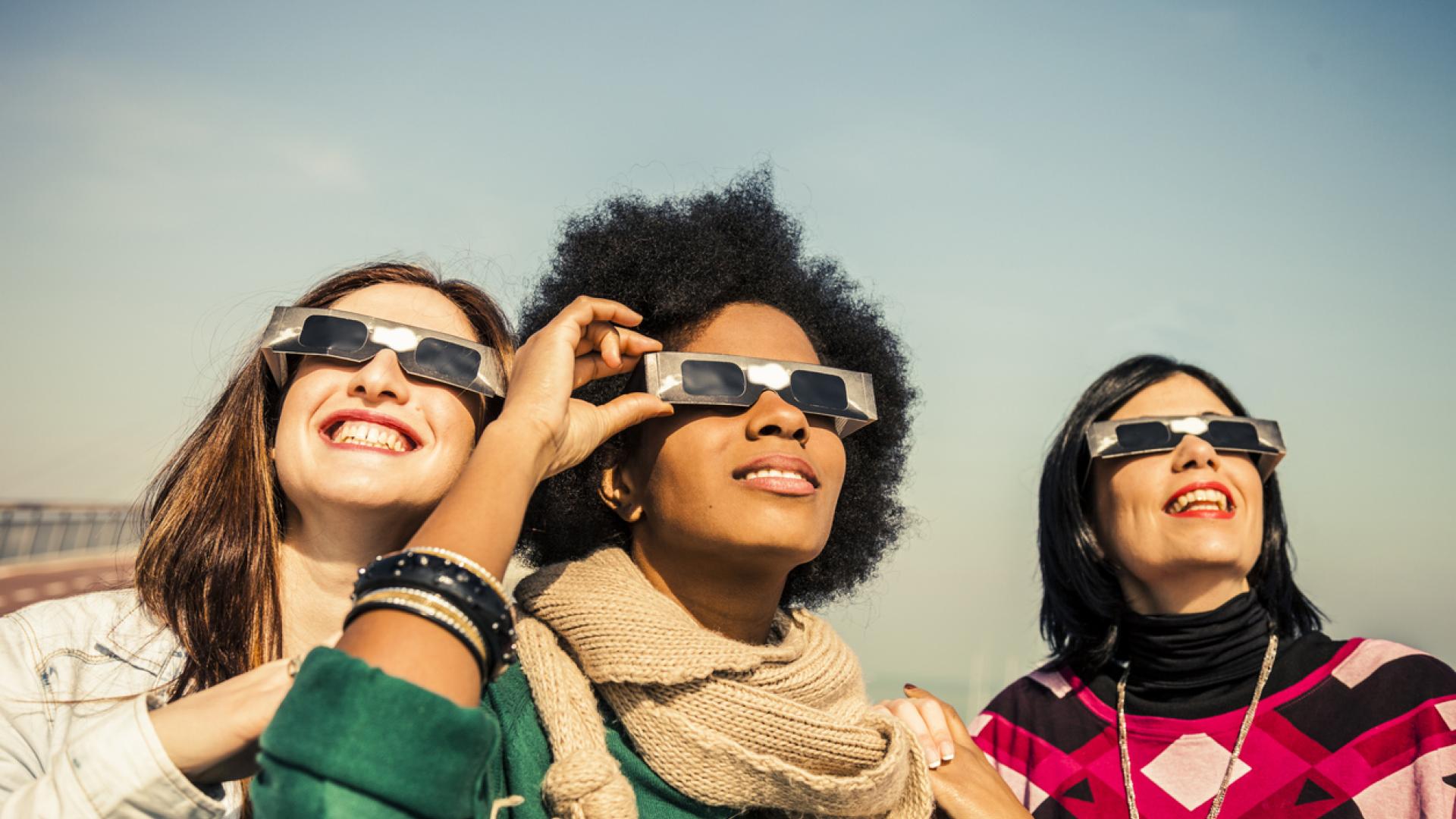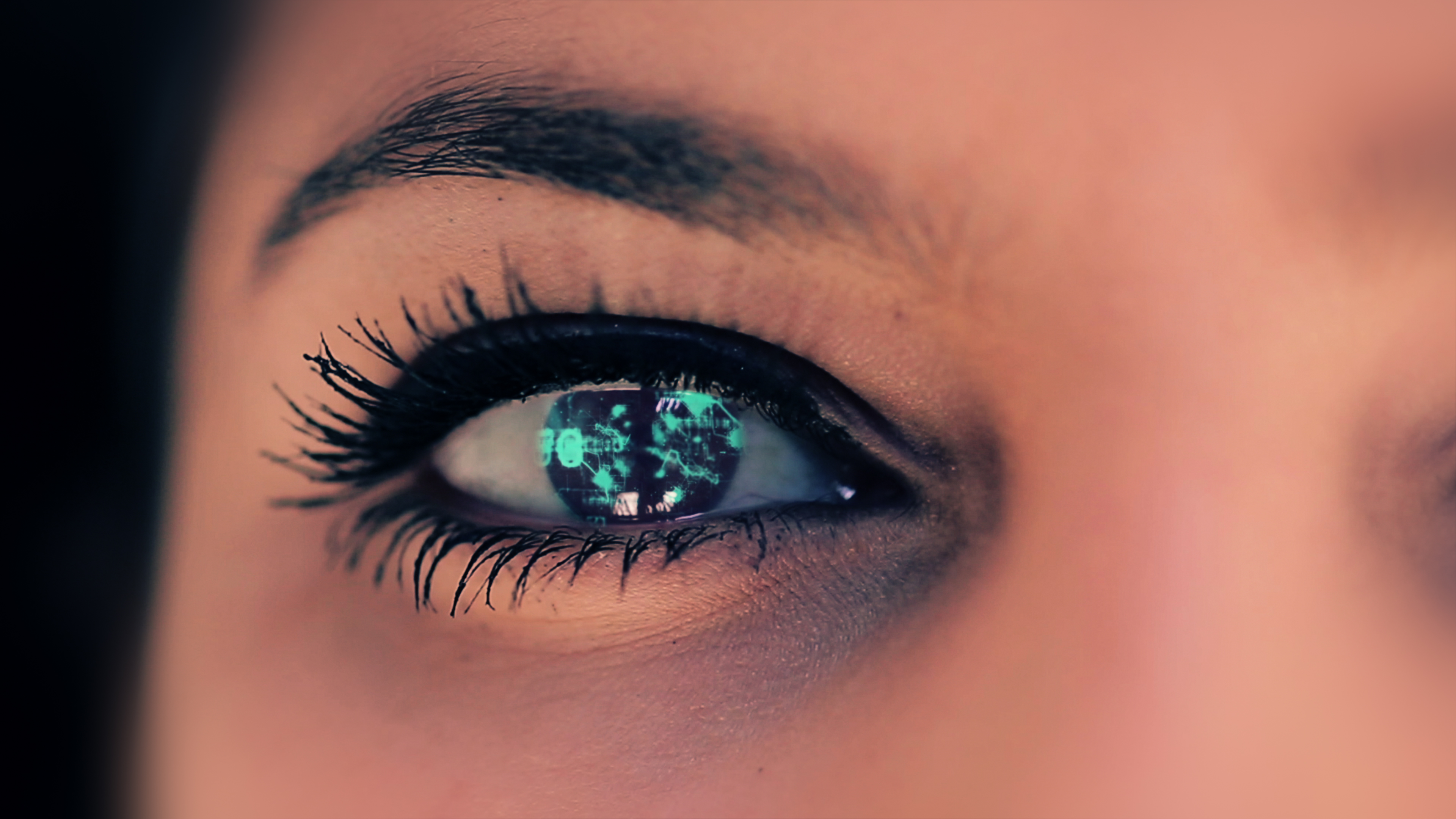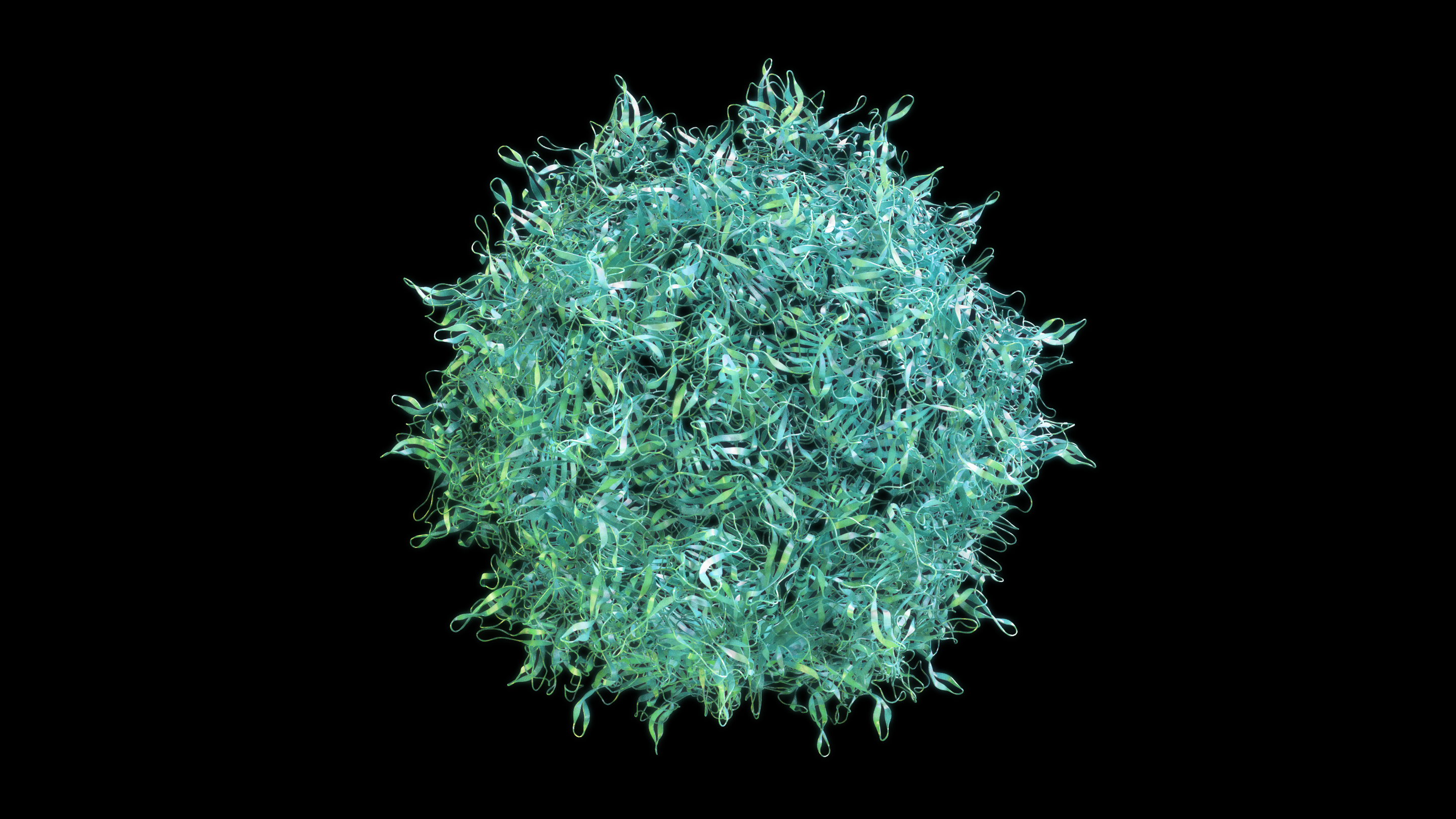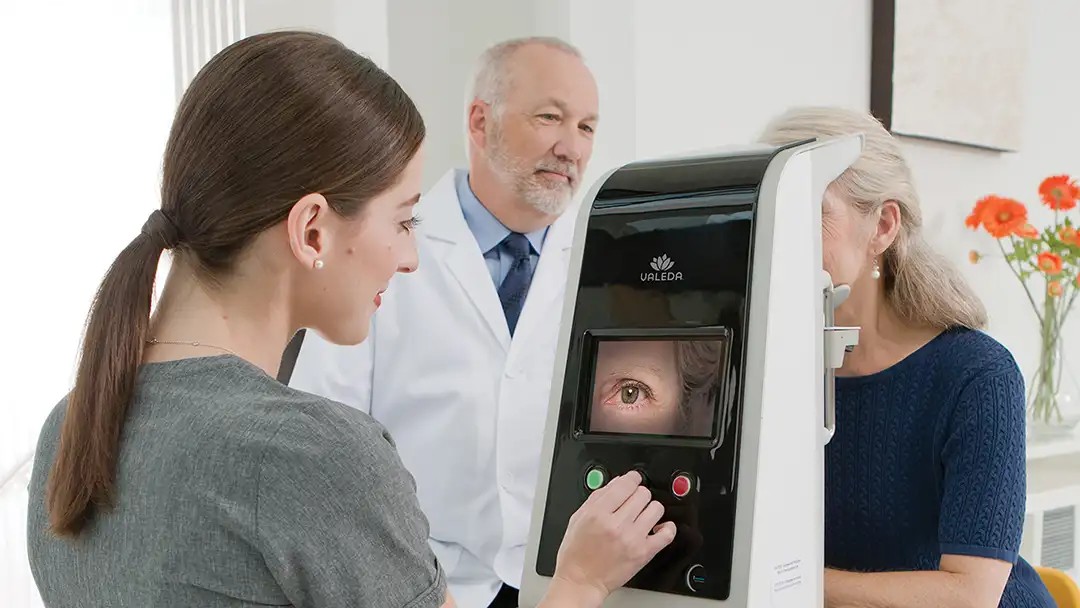
The next total solar eclipse visible from North America is coming up on April 8, 2024. Read more below for helpful tips on how to protect your eyes while viewing the eclipse.
A total solar eclipse occurs when the moon completely blocks the sun from our view. While this event is sure to be awe-inspiring, it is extremely important to ensure you are viewing the eclipse with the appropriate safety measures in place, especially for those with macular degeneration or glaucoma.
Only when you are in the “path of totality” and the moon completely blocks the sun is a total eclipse safe to look at directly with the naked eye. This lasts a few minutes, and one can look directly at the eclipse. However, if even a small sliver of the sun is visible, you can cause permanent and irreversible damage to your retina. NASA’s map of the path of the solar eclipse can help you identify the best places to view the eclipse and if you are in the path of totality.
Safe Viewing Tips
- Use eclipse viewing glasses. To safely view the eclipse, you will need special eclipse viewing glasses or solar filters. You cannot use super dark sunglasses or make your own filters using dark glass or silvery wrappers. Carefully inspect your eclipse glasses or solar filters before use to ensure they do not have any scratches or damage.
- Do not look at the sun through a regular camera, telescope, or binoculars. You should not do this even while wearing solar filters, as these optical devices may concentrate the damaging solar rays and enter your eyes.
- Ensure eclipse viewing glasses and solar filters meet the standard. Check the American Astronomical Society’s list of vendors of safe solar viewers, which contains links to solar viewers and filters that meet the specific worldwide standard (known as ISO 12312-2). If you are purchasing eclipse glasses or filters online, you can cross-check that the vendor is on this list. Be sure to also review the safety pages at NASA and the American Academy of Ophthalmology. NASA also has an excellent FAQ page.
- If you wear regular prescription glasses, keep them on and place your eclipse glasses over them. Your eclipse glasses should fit over your prescription glasses completely to ensure proper protection.
Protect Yourself from Retina Damage
Solar retinopathy is retinal damage resulting from exposure to the sun’s radiation and can occur after sungazing. Children and those who have undergone cataract surgery are at increased risk because the lenses in their eyes are clear and less able to block UV and infrared light. Large pupil size and certain photosensitizing medications (such as tetracycline, which is a commonly used antibiotic) can also increase risk. Individuals with macular degeneration are also at higher risk of solar retinopathy because the retina is more sensitive to UV light and sun exposure.
You may also be eager to teach your children or grandchildren about the solar eclipse. In that case, it is even more important to understand safe eclipse viewing practices and to discuss these important steps in advance. Even quick glimpses with the naked eye are not recommended, as damage to the delicate light-sensing tissue, the retina, can still occur. This is because the light-sensing cells of the retina are very sensitive to light, and it only takes a few seconds for damage to occur. For people with eye diseases like macular degeneration and glaucoma, it is especially important to follow these safety guidelines to protect your vision.
Summary
If you are one of the lucky ones to view a total eclipse, enjoy this most wondrous spectacle! Have fun safely by protecting your eyes (and your loved one’s eyes!) with high-quality viewing glasses.
About BrightFocus Foundation
BrightFocus Foundation is a premier global nonprofit funder of research to defeat Alzheimer’s, macular degeneration, and glaucoma. Since its inception more than 50 years ago, BrightFocus and its flagship research programs—Alzheimer’s Disease Research, Macular Degeneration Research, and National Glaucoma Research—has awarded more than $300 million in research grants to scientists around the world, catalyzing thousands of scientific breakthroughs, life-enhancing treatments, and diagnostic tools. We also share the latest research findings, expert information, and resources to empower the millions impacted by these devastating diseases. Learn more at brightfocus.org.
Disclaimer: The information provided here is a public service of BrightFocus Foundation and is not intended to constitute medical advice. Please consult your physician for personalized medical, dietary, and/or exercise advice. Any medications or supplements should only be taken under medical supervision. BrightFocus Foundation does not endorse any medical products or therapies.
- Eye Health
- Lifestyle









